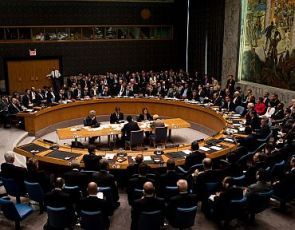India has some ability to influence what the world order will look like, but it needs to make structural changes to the ministries of external affairs and commerce, and evolve formal coordination mechanisms with the ministries of finance and home, says Nitin Pai
 So intense, so compelling and so all-consuming was the build-up to the recently concluded general election that developments outside India received less-than-usual attention in our public sphere. Yet a lot has been afoot in the world over the last couple of years that we in India have generally ignored -- and had the luxury of being able to ignore.
So intense, so compelling and so all-consuming was the build-up to the recently concluded general election that developments outside India received less-than-usual attention in our public sphere. Yet a lot has been afoot in the world over the last couple of years that we in India have generally ignored -- and had the luxury of being able to ignore.
As foreign policy analysts return to their usual stations over the next few weeks, we find a world where the Americans and the Iranians are beginning to get along; China's quarrels with its neighbours are more intense; the Russians seem to have a weekly calendar for invading their neighbours; and the Saudis are seriously raising their investment in proxy forces. This is over and above the usual in West Asia, Pakistan, North Korea, Africa and other places.
Geoeconomic analysts, for their part, will find the debate over international macroeconomic coordination and World Trade Organisation rounds somewhat on the backburner. Fashions have changed. If you are talking about the Washington Consensus versus the East Asian model, you are not cool any more. For that, you should be talking about inequality, Thomas Piketty and capitalism's congenital problems.
Now, if foreign policy analysts hang out with geoeconomic analysts and have a couple of drinks to loosen each other up a bit, they might find that what we are looking at is a change in the world order. Russians grabbing land from Ukraine and the evacuation of thousands of Chinese nationals from Vietnam could be more than isolated international problems: they might be manifestations of a changing or changed world order.
It is easy to accuse the aforementioned couple of drinks for leading otherwise sober analysts to elevate themselves to a level where they can see world order problems. But think about it: even as the United States remains the pre-eminent global power (it will take decades for China to catch up, if at all), Washington seems too preoccupied, too reluctant or too incapable of using its clout to enforce norms and punish transgressions even by small countries.
The US drew a "red line" for Bashar al-Assad on chemical weapons, but allowed the Syrians to cross it unpunished. It didn't draw explicit lines of any colour for Vladimir Putin, which he crossed anyway. President Barack Obama did insist that there were some red lines in East Asia when he visited the region recently, but it’s unclear if he used a permanent marker to do so. Under him, the US has consistently refused to act forcefully in places around the world where its direct interests are not threatened.
People have noticed. States that have the power to do what they want to and get away with it are beginning to do so. Putin is Exhibit A in this regard. If Recep Tayyib Erdogan were not embroiled in domestic problems, Turkey might have attempted to solve some regional problems on its own -- like Saudi Arabia is trying to. China unilaterally declared an air defence zone over East Asian skies and it is trading charges and cannon water with Vietnamese ships in the South China Sea.
Without US power, the drawstrings have come off the 70-year-old pyjamas of the United Nations system. Britain and France today are hardly the kind of powers that can get Russia, China and others to play by the rules they agreed to in 1945. Can China take up the, er, slack? Well, Beijing accords a higher priority to protecting its "core interests" than protecting the UN Charter, especially because the two might be mutually exclusive to a large extent. It is quite possible that Putin will volunteer Russia to act as guarantor of international law, or what he determines to be international law at any given time. That's not too helpful either.
A neat “G2” duopoly between the US and China is feasible only in the fantasies of some lazy and under-travelled US strategists.
So we might be staring at a couple of decades of a "polycentric world", where a number of regional powers have enough room for manoeuvre in their neighbourhood. Some of these manoeuvres could set off ripples across a larger geography, some of which might touch our shores. We in India have to work out our game plan should such a scenario pan out.
There is also uncertainty about what geoeconomic norms will be. Given that norms are outcomes of a combination of domestic politics, ideological clashes, intellectual developments and, with any luck, historical learning, there is no guarantee that we will see greater support for free trade and market economics.
India has some ability to influence what the world order will look like. On the campaign trail, Narendra Modi had indicated that he sees foreign policy as having both geopolitical and geoeconomic components. In order to put this into practice, his government will need to make structural changes to the ministries of external affairs and commerce, and evolve formal coordination mechanisms with the ministries of finance and home. It is important that the new government should not be distracted from world order issues by the everyday fire-fighting and the occasional crises created by the usual suspects.
The writer is director of the Takshashila Institution, an independent public policy think tank.
Image: The United Nations Security Council
Photographs: Reuters











